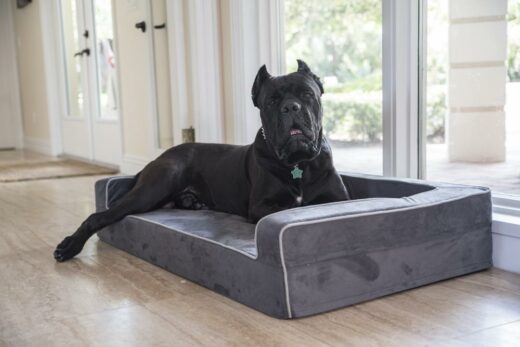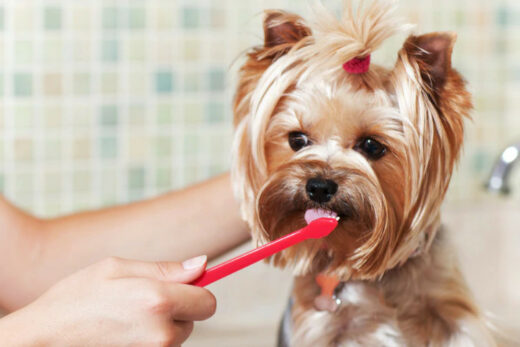Dogs are amazing creatures, and they never cease to make us laugh. The funniest thing to see is a dog scooting across the floor. It’s hilarious, but it always makes us wonder why do dogs drag their butts on the floor?
Fortunately, we have some insights on this topic, that might leave you feeling worried instead of laughing.
Why Do Dogs Drag Their Butts on The Ground
If you ever see your dog scooting across the room, then here are some common reasons as to why he is doing that
Anal Sac Problem
A dog’s anal sac can become inflamed, blocked, and infected. This is very common in smaller breeds, and in an attempt to alleviate the pain, the dog can start scooting.
Another common symptom of anal sac problems are swelling, licking, chewing, and trouble defecating. The best option would be to express the sac, which can be done in the vet’s office, give antibiotics, change the diet, flush the sac with anesthetic, apply warm compresses, or use anti-inflammatory medications.
Fecal contamination
Fecal contamination from diarrhea can stick to the dog’s butt, therefore, causing excessive discomfort. The dog will relieve the irritation by sliding across the floor. Fortunately, the treatment for fecal contamination is basically to clean the area and trimmed away dirty hair.
Worms
Parasitic or worm infection can occur when the dog swallows a flea or rodent. The most common signs and symptoms of tapeworm aside from scooting is rice-like material around the dog’s anus. Fortunately, tapeworm treatment comes in injectable or oral form.
Garlic is an excellent natural home remedy that you can use to get rid of the tapeworm. The best way to prevent the recurrence of tapeworm infection is to control the flea population. You can use Frontline flea medication to prevent it from landing on your dog’s body.
Rectal Prolapse
This is where part of the rectum protrudes through the anus. Prolapse occurs when your dog strains from severe constipation or have gone through severe diarrhea.
Treatment of rectal prolapse requires a trip to the vet and most likely surgery. In addition, to balance their plenty of fiber, moist diet, and stool softeners to prevent reoccurrence.
Allergies
If your dog is suffering from seasonal allergies or has an allergic reaction from an insect or flea bite, it can cause itchy skin. This can lead to excessive scratching and scooting across the room. You can treat this with allergy medication or topical medication to alleviate the symptoms
Referred pain
If the dog is continuously licking their anal region, but the anal sac appears normal, then referred pain might be a possible culprit. If the pain happens in the lower hip and back, it can cause a dog to drag its butt across the room.
Perianal fistula
This commonly occurs in the German Shepherd breed. This occurs from an abnormal connection between the rectum and the sac that leads to constant licking, itching, and scooting. This issue will require surgery from the vet.
Bacterial and yeast infection
Your dog can get a bacterial or fungal infection in their behind. Bacteria infection of the anal gland can elicit a very fishy smell.
However, bacteria require a prescription antibiotic from the veterinarian. Yeast infection is a fungal infection that can also cause the genital area to itch. It often has a white cottage cheese appearance, and require an antifungal medication from the vet.
Anxious
Sometimes, a dog can be extremely anxious over a particular situation, like moving to a new house or having separation anxiety. It can cause the dog to be severely itchy for no reason. With that in mind, don’t be surprised if your dog is messing up your carpet for no specific reason.
Matted hair
If your dog has long matted hair in his or her behind, it can get tangled. Combine this with dried up poop, and you have a dog that is itching like crazy along with some scooting sessions. Better see a groomer or consider getting some quality shampoo brand.





